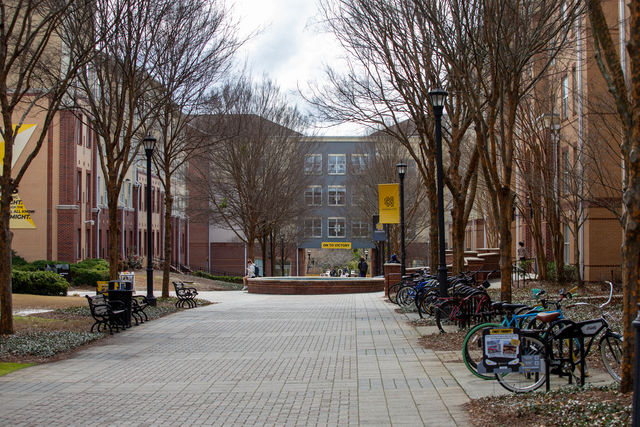(This article was edited for clarity.)
Housing is one of the greatest struggles for students at any university or in any city, but especially in Kennesaw.
While there are a handful of student apartments to choose from, most only offer leasing on a bedroom-to-bedroom basis at exorbitant prices for the average student. According to Apartments.com, a three-bedroom apartment in Kennesaw averages $1,917 per month, or about $639 per person.
More often than not, the most economical option for students is to live together in a single-lease, multi-bedroom residency, which there is plenty of in Kennesaw and Cobb County.
The problem arises when students realize they cannot rent in these places; or at least, that is what the law says. However, the zoning ordinance forbids any house zoned as a “single-family” residence from allowing multiple non-related people to live together.
A majority of neighborhoods in Cobb are zoned as “single-family,” with the municipal code defining “family” as:
“two or more persons related by blood, legal adoption, or marriage, occupying a dwelling.”
While loosely enforced by the county, the existence of this law makes landlords hesitant to rent to students, making an already arduous process even more burdensome. Zoning houses in Cobb this way eliminates the potential for students in an already troublesome market to find affordable housing, and potentially allows developers to come in and take advantage of desperate students.
Even our city commissioners recognize this. In June 2021, Fresh Take Georgia published an article on the same subject, in which Lisa Cupid, the chairwoman of the Cobb County Board of Commissioners, was stated as promising to address the concerns of students.
However, the revisions made to the municipal code only provided exemptions to complexes developed as student housing. If students wanted to rent a house, duplex, or apartment designated for single-family units, they would still run the risk of violating the law.
Cobb County must first redefine or edit language from the municipal code defining who can live in these “single-family” houses. Redefining the language of the law will open up more opportunities for students to find affordable housing.
Next, we need to stop looking towards national developers and management firms to take advantage of the student housing market and ordinances such as these. These companies only look to provide a place for students to live without consideration for community building, sustainable development practices, and the well-being of students.
We as a community need to recognize that Kennesaw is not the same as it was ten years ago.
“The community is expecting the same traditional character that was [here] before the model of the university changed,” Cupid said in the same Fresh Take Georgia article.
We should be more open to positive change instead of perpetuating traditionalist rhetoric, which will inevitably lead to the decline of the community as a whole. We should be more open to the ever-changing landscape surrounding KSU instead of barring housing from students based on outdated logic. We must remain open to new and innovative ways of housing students while maintaining the community cohesion that has existed in Kennesaw for decades.


